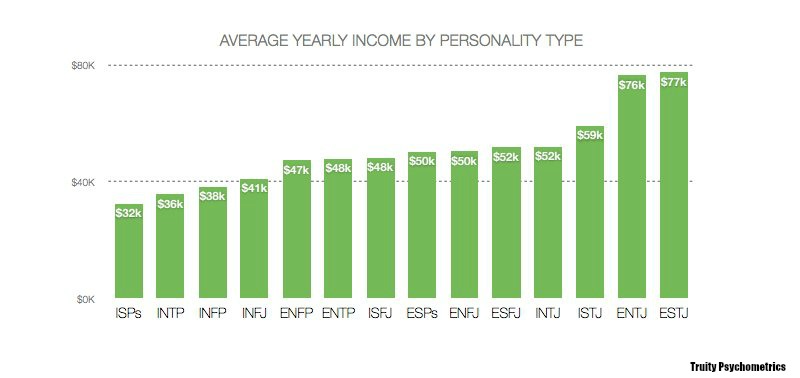Are you an extrovert or an introvert?
A recent study suggests that your innate traits and characteristics positively correlate with your career achievements and how far you’ll climb the business ladder.
Based on the “Myers-Briggs” personality theory, during their development process, individuals obtain preferences for specific ways of thinking, behaving, or communicating that influence their interpersonal relationships in their private and professional lives.
Specifically, there are 4 different categories for individuals to determine their preferences, all of which interact and form different dynamic personalities. In other words, during their development, individuals adopt a specific personality style with different characteristics.
 Particularly, a number of people are more extroverts while others possess more introvert qualities (I or E); some individuals make cognitive decisions while others depend on their feelings (T or F); some individuals are more sensible while others are more intuitive (S or N); and finally, there are people who need to plan ahead whereas others prefer to act spontaneously (J or P).
Particularly, a number of people are more extroverts while others possess more introvert qualities (I or E); some individuals make cognitive decisions while others depend on their feelings (T or F); some individuals are more sensible while others are more intuitive (S or N); and finally, there are people who need to plan ahead whereas others prefer to act spontaneously (J or P).
According to the study’s findings, personality qualities, like extroversion, sensing, thinking, and judging, are more likely to lead to higher income for individuals. Taking the two extremes as an example, we notice that an ISP personality type – a person who is introverted, sensing and perceiving – makes an average of $32k annually. On the other hand, an extroverting, sensing, thinking, judging (ESTJ) personality type makes on average $77k on a yearly basis. The following figure illustrates each Myers-Briggs personality type and their average salary in dollars earned per year.

An interesting point here is that such differences in annual salaries are closely related to the individual’s career achievements. According to the study, extroverted people that think,judge, and sense are more likely to hold managerial positions during their professional careers, as they overall manage more people on average than the introverted,intuitive, perceiving, and feeling type.
 Hence, the increased likelihood of the former personality type to manage people and get positions with greater responsibility and managerial duties increases the chances of ESTJs to earn more money. Personality traits are, therefore,a strong predictor of how far an individual will climb the business hierarchy ladder, which consequently results in earning more money. Another explanation of that outcome might be that extroverts are more likely to ask for raise in their salaries, while introverts might be more hesitant.
Hence, the increased likelihood of the former personality type to manage people and get positions with greater responsibility and managerial duties increases the chances of ESTJs to earn more money. Personality traits are, therefore,a strong predictor of how far an individual will climb the business hierarchy ladder, which consequently results in earning more money. Another explanation of that outcome might be that extroverts are more likely to ask for raise in their salaries, while introverts might be more hesitant.
Are you an introvert and you are reading this text? You shouldn’t think that you have limited chances acquiring a job with managerial responsibilities or earning a high income! The study by no means indicates that ISTJ personality types cannot or do not occupy high-paying positions. Moreover, there are other factors that play a role in professional advancement, like relevant skills and expertise. In the end it all boils down to hard work, talent and the factor of luck (“be in the right place at the right time”), whatever the personality type!
Theodoros Palaiopoulos
The CareerProfessor.works Team
Sources
Business Insider
Truity
Bustle
© 2017 CareerProfessor.works. All Rights Reserved.






